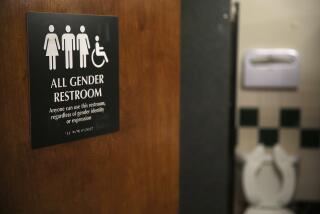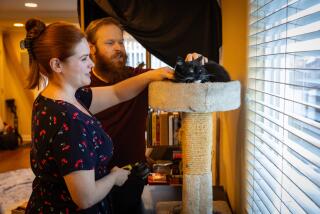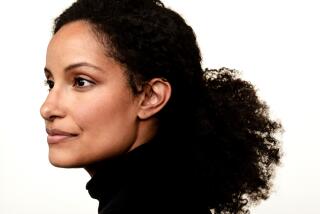Column: Using ‘privilege’ as a weapon
Of all the inaccurate and not-so-nice things people have said about me on the Internet over the years, the one that bothered me most didn’t involve being called a whore or a hack or, in one case, an ugly hobbit. It was the one that said something to the effect of “Meghan comes from a very wealthy family and grew up with every possible advantage.”
If you must know, my parents came from pretty hardscrabble backgrounds in the southern Midwest. I certainly didn’t grow up poor, but I did spend my 20s and early 30s juggling temp jobs and choking on massive student-loan debt.
I can only assume that whoever made the assertion to the contrary did so not because he believed it but because he wanted to render my credentials irrelevant by suggesting (or in this case announcing) that my life had been too easy to have earned those credentials and my position myself.
He wanted to hit me where it hurt. So he used the deadliest weapon in his arsenal. He accused me of being privileged.
It obviously worked, because years later here I am talking about it. And years later, amid an explosion of blogs and social media platforms and liberal arts curricula in which “privilege politics” is woven into every possible discussion, this weapon is being waved at just about everyone for just about every possible reason.
Are you heterosexual? Then you are privileged. Are you comfortable with the gender you were assigned at birth? Privileged. Are you white? Like you even have to ask.
And it goes beyond identity politics. What used to be called “class consciousness” — the awareness of how social and economic structures shape the self — might as well be called privilege shaming now. Political figures from families of means risk being painted as out of touch. Parents who can afford to not work outside the home are assumed to be at least a little bit spoiled and lazy. Those who have creative success are judged not just by their talent but also by the ease or difficulty with which they were able to put that talent to use. Escaping poverty and family dysfunction: good. Being raised in relative safety and comfort by loving parents: bad.
Last spring, an ultra-viral BuzzFeed quiz asked respondents to answer yes or no to statements like “I have never been mocked for my accent” and “I have never been told that my sexuality is ‘just a phase.’ “ The roots of the quiz can be found in something called the “social privilege checklist,” a concept developed in 1988 by feminist scholar and anti-racism activist Peggy McIntosh, so it’s not like millennials invented privilege policing. But what is new is the way privilege has become weaponized.
It shows up in the phrase “check your privilege,” which began as a way of indicating how a person’s background might leave him blind to the oppression experienced by others. Now what was once a legitimate tool for self-examination is an insufferably smug platform for self-righteousness.
That’s not to say those who start out standing on third base shouldn’t be encouraged to recognize the fact that they owe their prime position as much to good luck or good genes as hard work. But it’s also worth recognizing that in making privilege an accusation rather than an observation, we’re essentially buying into the idea that everyone, regardless of the circumstances they’re born into, can make it on their own if they try hard enough. And ironically, that’s the very kind of flawed assumption that McIntosh was calling attention to — and the very logic the privilege police see as their duty to combat.
The reason it was so bruising when someone said I was from a rich family is that, like many of us, I’m deeply invested — probably overly so — in the myth of my own self-creation. I like to believe that I got where I am, such as it is, by working hard and charting my own course. But that belief is just as myopic as the belief that a talented person who grew up in relative comfort deserves less admiration than a talented person who triumphed over adversity. It’s lacking in nuance and ultimately not that useful or interesting.
“What I believe,” said McIntosh in an interview this year about the current state of privilege politics, “is that everybody has a combination of unearned advantage and unearned disadvantage in life.... And it changes minute by minute, depending on where we are, who we’re seeing, or what we’re required to do.”
What an eminently reasonable view. Don’t expect to see it on Twitter anytime soon.
mdaum@latimescolumnists.comTwitter: @meghan_daum
Follow the Opinion section on Twitter @latimesopinion
More to Read
A cure for the common opinion
Get thought-provoking perspectives with our weekly newsletter.
You may occasionally receive promotional content from the Los Angeles Times.







